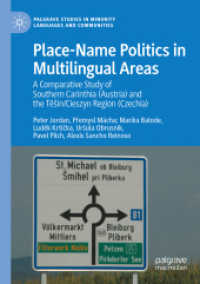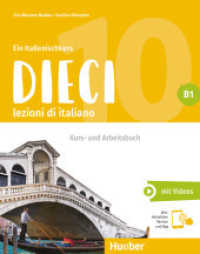- ホーム
- > 洋書
- > ドイツ書
- > Mathematics, Sciences & Technology
- > Mathematics
Full Description
This volume tackles Gödel's two-stage project of first using Husserl's transcendental phenomenology to reconstruct and develop Leibniz' monadology, and then founding classical mathematics on the metaphysics thus obtained.








